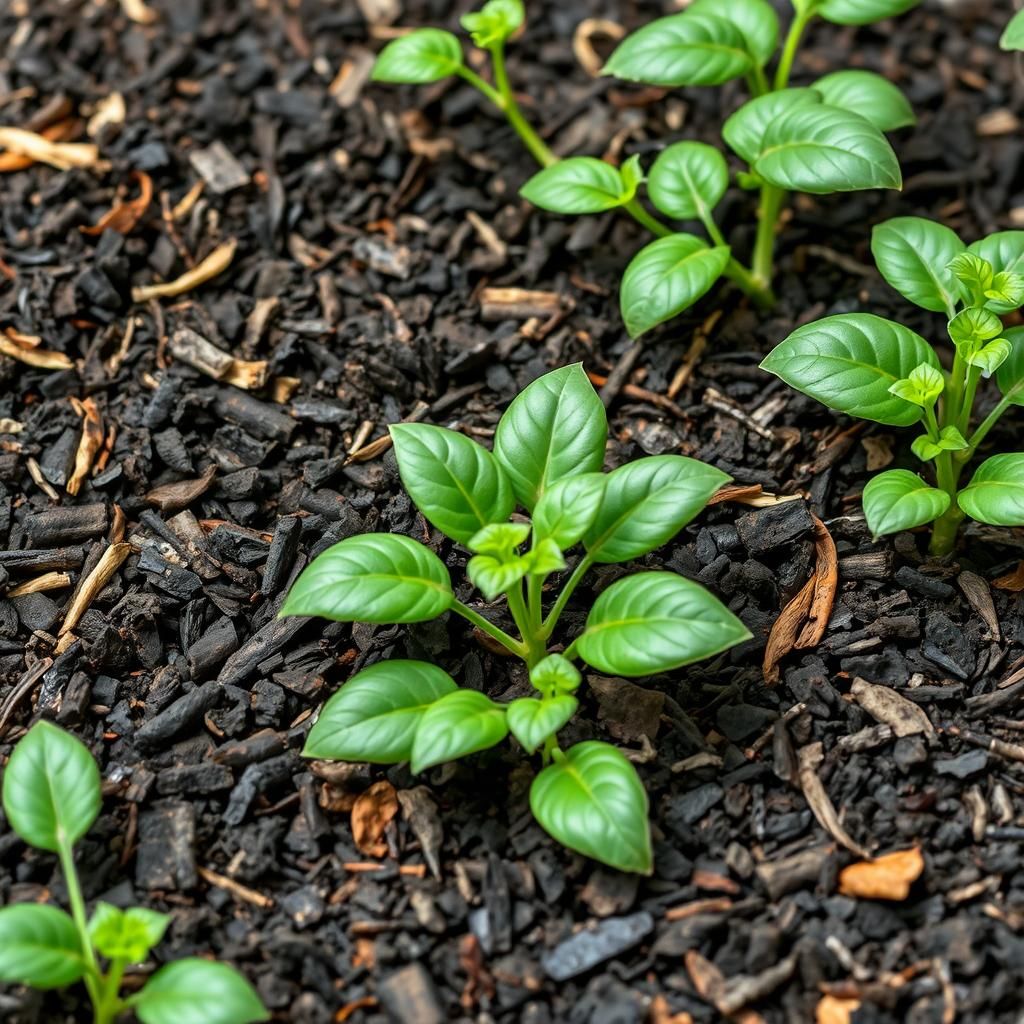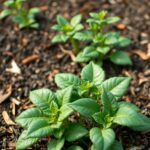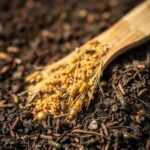Ultimate Guide to the Best Mulch for Vegetable Garden: Top Options for Healthy Plants

Creating a thriving vegetable garden requires more than just planting seeds and hoping for the best. One crucial element that can significantly influence the health of your plants is mulch. This ultimate guide explores the best types of mulch to enhance your vegetable garden, providing benefits such as moisture retention, weed suppression, and temperature regulation. Whether you're a beginner or a seasoned gardener, understanding the various mulch options available can help you make informed decisions that lead to a bountiful harvest. Join us as we delve into the top mulching materials and their specific advantages for your garden's success.
Choosing the Best Mulch for Your Vegetable Garden
When it comes to maintaining a thriving vegetable garden, selecting the right mulch is crucial for enhancing soil health and promoting plant growth. The best mulch not only suppresses weeds but also conserves moisture, regulates soil temperature, and can contribute essential nutrients as it decomposes. Organic options such as straw, shredded leaves, or wood chips are often favored for their beneficial properties, as they break down over time, enriching the soil in which your vegetables grow. However, it's vital to consider factors like availability, cost, and the specific needs of your garden when choosing the ideal mulch for optimal results.
Types of Organic Mulch
Organic mulches, such as straw, grass clippings, and wood chips, not only suppress weeds but also improve soil structure as they decompose. Straw is particularly beneficial because it provides excellent weed suppression, while grass clippings add nitrogen to the soil. Wood chips may take longer to decompose but offer a durable option for long-lasting ground cover. Each type of organic mulch serves specific purposes, depending on the nutrients it provides and how quickly it breaks down.
Inorganic Mulch Options
Inorganic mulches, like landscape fabric and rubber mulch, offer unique advantages for vegetable gardens. While they do not contribute nutrients to the soil, they effectively suppress weeds and improve drainage. Landscape fabric allows water and nutrients to penetrate but prevents weed growth. Rubber mulch, while durable and non-biodegradable, can retain heat, making it suitable for warmer climates but may lack some benefits of organic materials.
Benefits of Mulching
Mulching comes with a plethora of benefits for vegetable gardens, including moisture retention, temperature regulation, and weed suppression. By covering the soil with mulch, you reduce evaporation, which keeps the soil moist longer, essential for young vegetable plants. Additionally, mulch can moderate soil temperatures, protecting roots from extreme heat or cold. The layer of mulch acts as a barrier, preventing weed seeds from germinating, thereby reducing competition for nutrients and water.
See also:
How to Apply Mulch
Proper application of mulch is essential for maximizing its benefits in the vegetable garden. Aim for a thickness of about 2 to 4 inches to effectively suppress weeds and maintain moisture. It's crucial to keep mulch a few inches away from the stems of plants to prevent rot and disease. Regularly check the mulch layer as it decomposes over time, and replenish it as needed to maintain optimal conditions for your crops.
Mulch Alternatives for Vegetables
If traditional mulches are not suitable for your vegetable garden, consider alternatives like cover crops or compost. Cover crops, such as clover or buckwheat, can improve soil fertility while preventing erosion and suppressing weeds. Compost not only serves as a mulch but also enriches the soil with nutrients, making it an excellent choice for nutrient-sensitive vegetables. These alternatives can provide effective solutions while still enhancing the growth conditions for your garden plants.
| Mulch Type | Benefits | Decomposition Rate |
|---|---|---|
| Straw | Excellent weed suppression, adds nitrogen | Fast |
| Grass Clippings | Rich in nitrogen, easy to source | Fast |
| Wood Chips | Long-lasting, improves soil structure | Slow |
| Rubber Mulch | Durable, effective weed control | Non-decomposable |
| Landscape Fabric | Prevents weeds, allows water and air | Non-decomposable |
The Importance of Choosing the Right Mulch for Vegetable Gardens
Choosing the right mulch for your vegetable garden is crucial for ensuring your plants thrive. Mulch helps to retain moisture, regulate soil temperature, suppress weeds, and improve soil structure as it breaks down. Different types of mulch, whether they are organic or inorganic, offer various benefits. Understanding the specific needs of your vegetables and the local climate will guide you in selecting the best mulch option that promotes a healthy growing environment.
Types of Organic Mulch for Vegetable Gardens
Organic mulches, such as straw, wood chips, and grass clippings, are beneficial as they provide vital nutrients to the soil as they decompose. They not only help in moisture retention but also enhance soil fertility, making them an excellent choice for growing diverse vegetable varieties. Additionally, they contribute to a healthy ecosystem by attracting beneficial insects and microorganisms to the garden.
Benefits of Inorganic Mulches
Inorganic mulches like plastic sheeting or landscape fabric offer unique benefits, such as strong weed control and enhanced soil temperature regulation. They are particularly useful in warmer climates, as they can help retain soil heat essential for vegetable growth. However, these materials do not add nutrients to the soil, so they are best used in conjunction with organic options to maintain soil health.
See also:
How to Apply Mulch Effectively
Applying mulch effectively requires proper technique to maximize its benefits to your vegetable garden. When laying down mulch, ensure it is applied to a depth of 2-4 inches around your plants. Keep the mulch a few inches away from the stems of your plants to prevent rot and encourage airflow. It’s essential to reapply mulch as it breaks down over time, maintaining its effective nutrient and moisture retention capabilities.
Seasonal Considerations for Mulching
Seasonal changes significantly impact mulch performance in a vegetable garden. In the spring and summer, mulch can prevent soil from drying out and regulate temperature for new plants. Conversely, during fall and winter, it acts as an insulating layer to protect roots from extreme cold. Adjusting your mulch approach according to each season enables your garden to adapt and thrive throughout the year.
Common Mistakes to Avoid When Mulching
Avoiding common mistakes when mulching is key to achieving a healthy vegetable garden. One frequent error is applying too much mulch, which can lead to root suffocation and increased pest problems. Additionally, using fresh wood chips can temporarily rob the soil of nitrogen as they decompose, so it's essential to let them age before application. Understanding these pitfalls allows gardeners to maximize the mulch's effectiveness while maintaining plant health.
Questions from Our Readers
What is the best mulch for vegetable gardens?
The best mulch for vegetable gardens often includes materials like straw, wood chips, or grass clippings, which help retain moisture and suppress weeds. Each type has its own benefits; for example, straw is excellent for water retention while wood chips can provide a long-lasting barrier against weeds.
How thick should the mulch layer be for vegetable gardens?
A mulch layer of about 2 to 4 inches is generally recommended for vegetable gardens, as it provides adequate coverage to suppress weeds and retain moisture without suffocating plants. Too thick of a layer may prevent air exchange, while too thin may not provide sufficient benefits.
See also:
Can I use organic materials as mulch in my vegetable garden?
Yes, using organic materials such as shredded leaves, straw, or compost is beneficial in vegetable gardens, as they decompose over time, enriching the soil with nutrients. Just be cautious with certain materials like fresh grass clippings, which may contain herbicides that could harm plants.
How often should I refresh the mulch in my vegetable garden?
You should refresh your mulch every 6 to 12 months, depending on the materials used and environmental conditions. Regularly checking the mulch layer will help ensure it remains effective at moisture retention and weed suppression, providing ongoing benefits to your vegetable plants.

If you want to read more articles like Ultimate Guide to the Best Mulch for Vegetable Garden: Top Options for Healthy Plants, we recommend you check out our Mulch category.
Leave a Reply
Related Articles